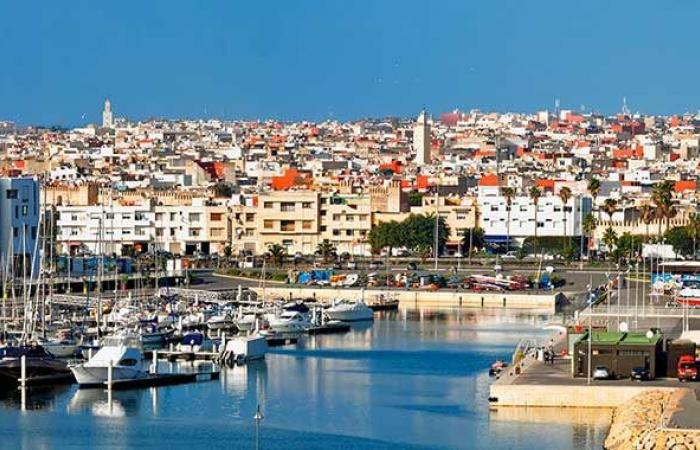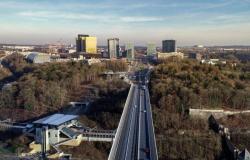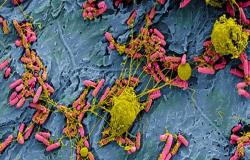The region hopes to improve the performance of value chains, consolidating regional competitiveness and adopt precise mapping of opportunities for each territory in the region.
Study : The Rabat-Salé-Kénitra region has recorded remarkable momentum in recent years with the completion of several large-scale projects. With a dense road network, the region has many assets to increase the performance of the growing economic sectors it is home to. In this sense, it is working to further strengthen its attractiveness in terms of investments. With this in mind, the Regional Investment Center (CRI-RSK) is conducting an in-depth study targeting five strategic economic sectors, namely the automobile industry, the agri-food industry, the pharmaceutical industry, textiles and tourism. This study will have to analyze the value chains and identify the links to be filled. It will also be reinforced by a mapping of key activities that create value within each sector, from upstream to downstream.
Strengthen investment opportunities in the Rabat-Salé-Kénitra region. This is the objective of a study recently launched by the Regional Investment Center. This study shines the spotlight on five key sectors, namely the automotive industry, agri-food, pharmaceutical industry, textiles and tourism. This initiative aims to analyze the value chains of these sectors, to identify the links to strengthen or create, and to map the key value-generating activities. From upstream to downstream, the study will provide a better understanding of the interactions between the production stages and evaluate the success factors, whether technological, logistical, or linked to specific skills. This analysis should also provide several insights, by adopting an investment map which will determine the missing or weak links in the value chains, and strategic recommendations which will propose solutions to strengthen critical segments or develop new ones. The said study should also include growth forecasts, which involves analyzing regional, national and international market trends to anticipate opportunities. As part of this study, it is also a matter of identifying the main economic players and evaluating their current capabilities in order to have a database of prospects. Depending on the sector, the analysis will focus, as specified by the CRI-RSK, on production flows or on more global interrelations between the stages of the chains. The objective is to optimize the use of resources and strengthen strategic capacities, to increase the competitiveness of key sectors.
Strengthen regional competitiveness
The study that the CRI-RSK intends to carry out includes the development of a bank of projects to attract investors. It will highlight the investment opportunities specific to each province and prefecture in the region, detailing the most promising projects. Business cases will also be highlighted in this context. The region thus hopes to improve the performance of value chains, consolidate regional competitiveness and adopt precise mapping of opportunities for each territory in the region. It must be said that Rabat-Salé-Kénitra has experienced significant growth in recent years with several projects in progress. In terms of achievements, we note that in 2023 the activity of the CRI-RSK reflects this dynamic.
Out of 1,076 applications submitted via the CRI-Invest platform, 957 were examined by the Unified Regional Investment Commission (CRUI), representing an approved investment volume of more than 81 billion dirhams and the expected creation of nearly 74,000 jobs. . In terms of support, more than 850 investors and project leaders were supported. In addition, 1,200 project leaders benefited from support from the Integrated Business Support and Financing Program (PIAFE). Another notable initiative to mention is that of the launch of the Regional Investment Observatory, accessible via the platform www.observatoire.rabatinvest.ma. This tool brings together more than 30,000 pieces of data and can respond to more than 200 queries, providing a clear and up-to-date vision of regional dynamics. With an area of 17,570 km², Rabat-Salé-Kénitra has 114 municipalities, 4 provinces and 3 prefectures. Its dense road network of 5,725 km demonstrates its potential to attract structuring investments in promising sectors. As a reminder, the CRI is responsible for contributing to the implementation of State policy in terms of development, incentive, promotion and attraction of investments at the regional level and overall support for businesses. , in particular SMEs and SMEs, through the different conciliation missions and the different missions of its different divisions.
This is the title of the box
Some flagship projects in the region
Edifices
Among the most attractive projects in the region is the Mohammed VI Tower. This is one of the most important projects on the right bank of Bouregreg. This future jewel of the African continent is visible from 50km around and was built by Bank of Africa for a projected budget of around 4 billion dirhams.
This Tower, whose official launch was chaired in 2018 by His Majesty King Mohammed VI, constitutes the emblematic building of the Bouregreg Valley development plan and one of the main components of the “Rabat city of light, Moroccan capital of culture.
Added to this are others such as the grand theater of Rabat. Located in the heart of the Bouregreg Valley, this building stands as a symbol of the cultural and artistic renewal of the capital of the Kingdom. The creation of this work is part of the policy of equipping cultural infrastructures across the country and reflects the Royal desire to provide the city of Rabat with a theater allowing it to rise to the great metropolises of the Mediterranean, such as the underlines the CRI of the region. Another flagship project in the region to mention is that of the new Ibn Sina Hospital. The future CHU will have approximately 140,000 m2 of covered area, or 14 hectares. Construction work was launched for an amount of 1.55 billion DH.






